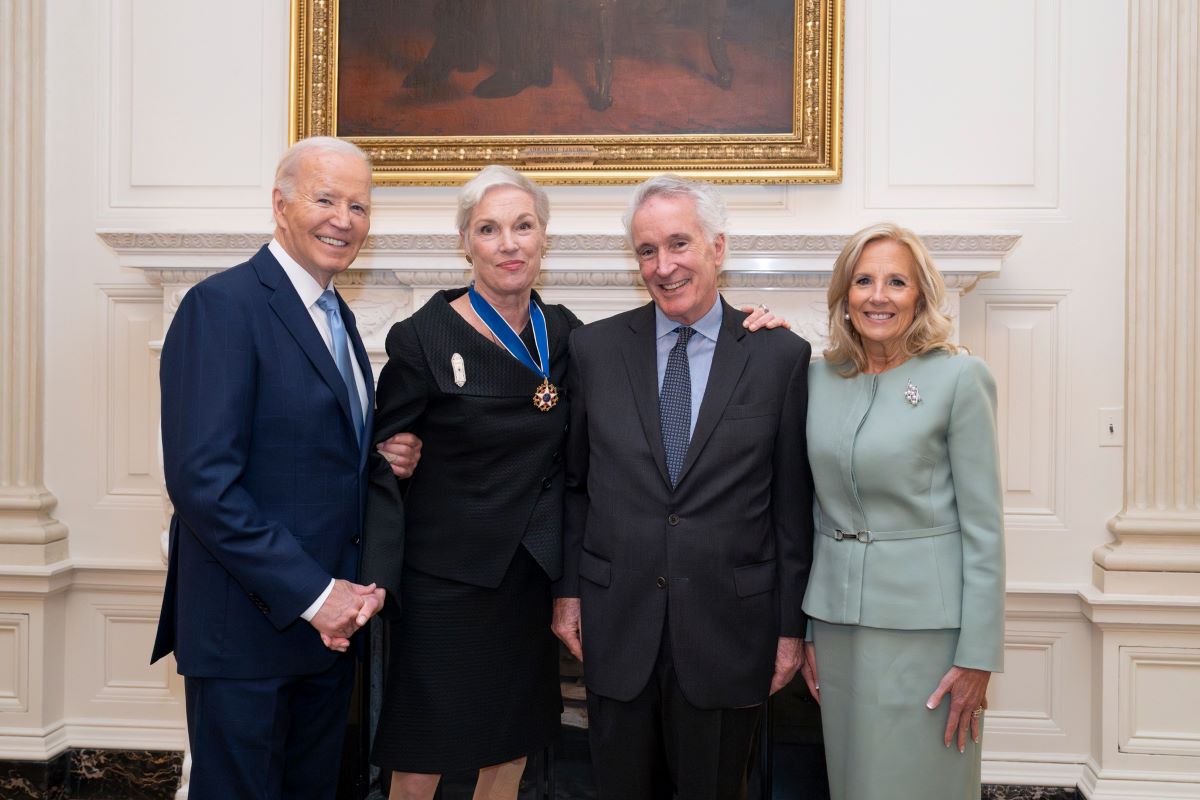Biden Announces 13-Nation Indo-Pacific Economic Framework
President Joe Biden in Tokyo is launching a new Indo-Pacific Economic Framework (IPEF) with 12 other countries in the region, who together are signing up as the first members of the economic partnership focusing on the Asia-Pacific.
“This framework is a commitment to working with our close friends and partners in the region on challenges that matter most to ensuring economic competitiveness in the 21st century,” Biden said. The new collective will not include China or Taiwan.
Indo-Pacific leaders are congregating in Tokyo for a second Quad Summit. In addition to launching the IPEF, Biden will hold distinct bilateral meetings with Indian Prime Minister Narendra Modi and recently-sworn-in Australian Prime Minister Anthony Albanese.
According to a May 22 White House press gaggle, National Security Advisor Jake Sullivan said that a potential Taiwanese invasion “won’t be part of the formal agenda of the Quad,” but the countries will discuss “significant security issues in the Indo-Pacific.”
Sullivan told reporters that the United States continues to work closely with Taiwan, looking to “deepen our economic partnership with Taiwan, including on high-technology issues, including on semiconductors and supply chains,” considering the importance of the self-ruled island in global supply chains. He also reiterated the United States’ support for the One China policy guided by the Taiwan Relations Act, three joint communiques, and six assurances.
Ahead of the formal launch of the U.S.-led framework, Chinese foreign minister Wang Yi said in a statement on May 22 that the United States was forming “small circles” under the banner of “freedom and openness” to contain China.
“Facts will prove that the so-called Indo-Pacific strategy is in essence a strategy to create division, to incite confrontation, and to undermine peace,” he said.
On whether IPEF will be a “closed club,” as alleged by Beijing, Sullivan replied that it has already secured a wide-ranging membership and, “in addition to the countries that join for the launch tomorrow, others will come along in the months and years ahead.”
The IPEF is “not a security arrangement” and will deal with mostly economic policies focusing on digital economies and “secure and resilient supply chains,” he said.
Besides this, the program seeks to bind regional countries more closely through common standards in areas like infrastructure and clean energy.
Japanese Prime Minister Fumio Kishida told reporters ahead of the formal IPEF launch that while China is currently demonstrating a significant economic presence in the region, other countries in the region do not believe it is not living up to its international obligations.
“[L]ook into the substance of their presence: Are they abiding by international rules? What about their development projects. Are they caring about sustainable initiatives? They have to do that because they are a major power. They have a significant responsibility even in the economic field; they have to live up to that responsibility. So Japan will cooperate with the United States, and vis-a-vis China, persuade them to live up to their responsibility to abide by international rules,” Kishida said.
Since the pandemic, global supply chains have been greatly disrupted, contributing to product shortages across the world and also to inflationary pressures.
The Russian invasion of Ukraine has exacerbated the problem with closure of Ukrainian ports that has resulted in increased food prices and related shortages especially in vulnerable regions of Africa and Asia. The Chinese Communist Party’s “zero-COVID” policies keeping Chinese in lockdown are also contributing to global supply pressures.
Japan wants more nations to join the IPEF, which may result in Monday’s launch marking a start of discussions rather than finalizations.
Regarding the American ability to build mutually beneficial alliances in Asia against a backdrop of China’s economic slowdown, Sullivan said, “When you see the breadth of participation in IPEF tomorrow, we believe that that will be strong evidence that countries do want to bet on the United States [and] do want to be part of an economic arrangement with the United States where we’re setting rules together.”
" Conservative News Daily does not always share or support the views and opinions expressed here; they are just those of the writer."





Now loading...